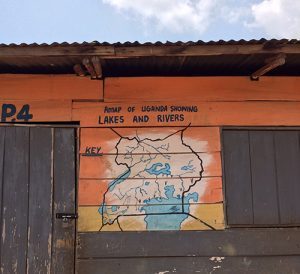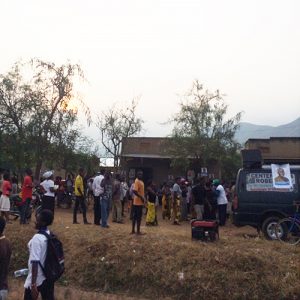Reflections on an inspirational research trip
by Jisun Park, HCRI alumnus.
Wrapping up a year of my life at the Humanitarian and Conflict Response Institute (HCRI), I was packing my luggage to leave Manchester and all kinds of memories from this city went through my mind like a flash. From the articles that I had read and the discourses of humanitarianism within the articles that I practiced and trained my critical thinking, to the inspiring in-class discussions with colleagues regarding sensitive humanitarian issues, my one year at the University of Manchester was full of priceless learning experiences that have improved my life as a prospective humanitarian. However, I realised that what affected me the most throughout my year at HCRI was definitely the field research visit to Uganda arranged for the module ‘Humanitarianism in Practice’ in January 2016. As I realised the value of the research visit that I now owed my future humanitarian career to, I felt obliged to pass on the lesson I had learnt from the visit on the HCRI blog before I left the university to start my career as a real humanitarian.
My first impression of Uganda was that religion had a significant influence on the nation’s everyday life. Not only did the population hold religious beliefs in Uganda, it was explicit that people’s religiosity was actually practised in their public as well as private lives. For instance, encountering the locals, the name of God and his blessing was frequently referred to when the people in Uganda greeted others. Additionally, while casually communicating with the locals, it was found that when they were interpreting their lifetime experiences, the sacred being, namely ‘God’, had been identified as the major actor in their lives. It seemed that the rule of God was believed as the standard of many Ugandans’ daily judgment. Moreover, knowing that Uganda has no official religion, I was a bit surprised when our meeting with the district-level Disaster Management Committee (DMC) in Kasese started with prayer at the suggestion of a DMC official.
Positioning myself as a humanitarian researcher throughout the visit, I tried to figure out the implications of Ugandans’ religiosity for the disaster risk reduction (DRR) conducted in Uganda. During the visit, in a persistent attempt to design my research based on the interesting findings from the research visit, I recalled the concept of ‘disaster resilience’. Focusing on the psychological aspect of disaster impacts, it was considered to be a plausible explanation that the religiosity of Ugandans, holding God responsible for their lifetime experience including their birth and death, functions as the buffer of psychological stress and shock which result from the disaster risk. Indeed, Ugandans whom I met during the visit were psychologically resilient to the disasters. The interviews with government officials dealing with DRR, the discourse analysis of the at-risk populations’ interpretation of the disaster risk and their emotional reactions to the seemingly ‘catastrophic’ experience provided me with empirical evidence of how psychologically resilient they are to the risk. This may be nothing more than a cursory presumption, however, as a religious person myself, I intuited that that high level of psychological adaptation of Ugandans to recurrent ‘natural’ disasters and several other risks in their lives, even those that claim the lives of their loved ones, resonates with the people’s religiosity, their psychological dependence on the existence of God, who has good will.
Despite the benefit that Ugandans’ religiosity seems to contribute to the people’s psychological resilience, as a humanitarian, who seeks for constructive changes in Uganda that can effectively reduce the people’s vulnerability to socially constructed disasters, I also felt worried about the possible adverse effect of the strong psychological resilience on Ugandan DRR. The religiosity of Uganda makes the government officials and general populations of Uganda attribute disaster to divine force which may lead Ugandans to interpret the risk of ‘natural’ disaster as an uncontrollable and inevitable ‘natural’ phenomenon, not a social construct.
In conclusion, the experiences during the research visit to Uganda presented me with a moment of creative destruction in my perspective of humanitarianism in practice, in particular DRR. To be sure, the findings from my first research visit are too preliminary to be generalised. However, it is undeniable that I now have a brand-new lens to see, read, and interpret the world. I am one step closer to being a humanitarian as I now understand how difficult it is to be a good humanitarian, capable of translating good intentions into good practice that actually helps people in need. It seems that my journey to be a good humanitarian who understands the importance of cultural communication in DRR has just started thanks to this research visit.




0 Comments